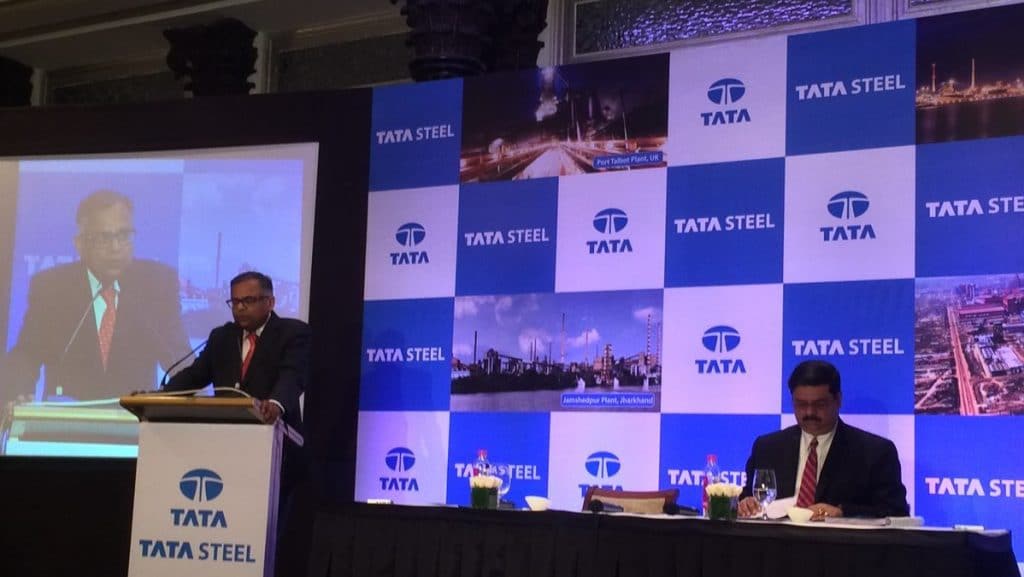The merger between Tata Steel and Thyssenkrupp is causing ripples in Germany, ahead of polls, with the prospects of job cuts in the company.
The two companies agreed on Sept. 20 to a preliminary merger of their European operations in a deal that would create an industry giant, which can protect Tata’s British operations.
Social Democrat leader Martin Schulz criticized the deal during a campaign speech. “The plan to move the company headquarters to the Netherlands makes me believe they want to cut jobs — that is not acceptable,” Schulz said in central Gelsenkirchen, close to the Thyssenkrupp plant, Bloomberg reported. “Steel is at the core of our industry and the German sites must remain here.”
German Vice Chancellor Sigmar Gabriel had in the past called on Thyssenkrupp to consider alternatives to a merger. Other politicians are voicing concern too.
“The German sites are highly competitive, and that must also be the case in the future. There must not be a merger at any cost,” Labor Minister Andrea Nahles said in an email statement quoted by the Economic Times. Economy Minister Brigitte Zypries also released a statement talking of the need for the deal to gain “acceptance from all those affected”.
The proposed 50:50 joint venture would be Europe’s second largest steel business, behind ArclorMittal. The combined business will be named Thyssenkrupp Tata Steel, with headquarters in Amsterdam. Annual revenue is expected to be €15 billion, with shipping of about 21milion tonnes of steel per year.
The merger came at time when Tata Steel’s British operations were ailing, as the company looked for buyers last March when steel crisis was at its peak. Tata Steel and Thyssenkrupp were in talks for over a year-and-a-half.
The merger would protect the jobs of 4,000 Tata employees at its giant Port Talbot plant in Wales. It would also provide Tata Steel Europe an opportunity to transfer a term debt of €2.5 billion out of its debt of €3 billion to the merged entity, along with another about €4 billion of pension and other legacy liabilities so as to sustain its “downturn and service its obligations”.
While announcing the deal after signing the MoU, N Chandrasekaran, the chairman of Indian parent Tata Steel, said: “Tata and Thyssenkrupp have a strong heritage in the global steel industry and share similar culture and values.
“This partnership is a momentous occasion for both partners, who will focus on building a strong European steel enterprise. The strategic logic of the proposed joint venture in Europe is based on very strong fundamentals and I am confident that Thyssenkrupp Tata Steel will have a great future.”
Thyssenkrupp chairman Heinrich Hiesinger said the merger would create “a strong number two and is thus much better positioned to cope with the structural challenges in the European steel industry”.
The deal will facilitate cost savings between €400m and €600m a year through integration of sales and administration, research and development, optimization of procurement, logistics, service centers and other support activities.
Tata’s face will change in the next 10 years as it moves forward with adopting new technologies and responds to needs of a fast growing nation — which is automation, healthcare and nutrition, former chairman Ratan Tata told CNBC TV 18 in an interview.
Ratan Tata controls two-third of holding company Tata Sons at the moment. “There will be companies who were not there earlier and companies that were there, not there 10 years from now, because they may not be relevant or they may be sold off or transferred to other companies,” he was quoted by Reuters as saying.
He added that he will engage with startups and look for opportunities in younger companies that are backed by vision and passion of their promoters. He has investments in startsups such as a mobile wallet Paytm, e-commerce firm Snapdeal and cab-for-hire app service Ola.
Tata Steel and Thyssenkrupp expect the deal to be concluded in 2018.
